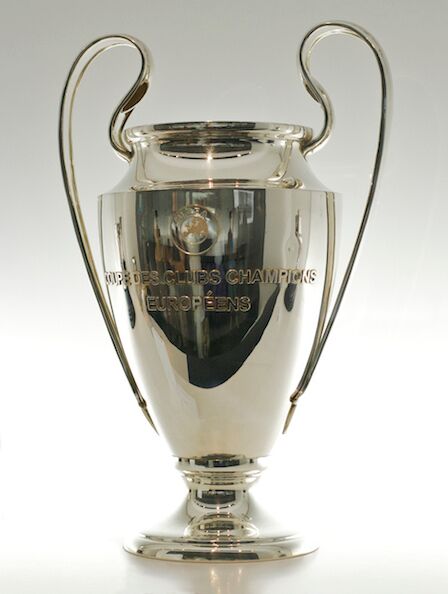The Road to Milan Begins

Of all the teams that participate in the tournament, Real Madrid is the one with the most UCL trophies (10).
September 24, 2015
It’s September and the European leagues are barely starting to take shape. But for the most expensive, most elite, most exciting tournament in the planet, the stage is set. The Union of European Football Associations (UEFA) Champions League, or UCL as it’s affectionately called, began its group stage. To soccer fans on this side of the world, this means taking sick days, fabricating excuses in order to miss work, and even extended lunch hours just to catch the games of the day.
This is the single annual tournament that brings the biggest stars, the most elite soccer clubs, and the most viewership of any sports in the globe. The Super Bowl is pale in comparison to the UCL final game. In fact, according to an article published by Quartz, an online business magazine, the statistics proved this; in 2014 alone, the UCL Final game had an audience of 170 million viewers, thus surpassing the Super Bowl, which according to CBS, Nielsen, estimated 111.5 million viewers.
This current edition of the UCL begins in September, breaks in December, then will begin again in February 2016. Like in every season since 1999, the teams that entered the draw were split into eight groups of four, and play each other at home and away during the months of September through December. Then, the tournament takes a break and picks up again in February. The 32 qualified teams compete to earn a spot in the final game set to be held in Milan, Italy, at Stadio San Siro.
There are some things to know prior to this particular season: First is that 22 teams who had their spot in the tournament assured, were joined by ten play-off winners. One of these teams was Sevilla, the first club to qualify as UEFA Europa League winners. When Valencia beat Monaco in the playoffs, Spain was the first nation to have five teams in the group stage. Also, Astana were the first team from Kazakhstan to make it into the UCL.
Unlike previous years, following a change in the regulations, pot #1 for the draw was formed by the holders and the champions of the top seven associations: Spain, England, Germany, Italy, Portugal, France and Russia.
As Barcelona is also Spanish champion, the eighth-ranked Netherlands received the vacant seeding place. From the Round of 16 until the Semifinals, the clubs play two games against each other on a home-and-away basis with the same rules as the qualifying and playoff rounds applied. In the Round of 16, group winners play runners-up other than sides from their own pool or nation, while from the quarterfinals, there is a draw.
A single match at the San Siro stadium in Milan, Italy will decide the champion on May 28, 2016.
The Spanish clubs are looking to keep the winning streak for their country after Real Madrid won in 2013-14, then Barcelona in 2014-15. Some other teams that have high chances of taking the trophy this season, and giving fierce competition to the Spanish teams are: 2012-13 UCL Champions, Bayern Munich (GER), PSG (FRA), and last season’s runner up, Juventus (ITA).
The English Premier League teams haven’t had particularly good participation since Chelsea won the trophy in 2011-12. Chelsea is having a rough start to their season and look to improve in this UCL tournament. Manchester United is back in the Champions League after a year’s absence. Although, leading their current league, Manchester City has struggled in this tournament in recent years.
Both devoted and fair-weather soccer fans can agree, this is the toughest tournament in Europe. Perhaps that’s why the Champions League is always a thrill to follow. This is especially true when teams from smaller countries prove to be tough opponents for the big money makers of the continent.
It’s one of the most effective marketing campaigns in the entire world, two words in an anthem that bring the soccer world together. It is the anthem that brings goosebumps to anyone anticipating these games, this tournament. “Die Meister, Die Besten, Les grandes équipes…” The Champions.





